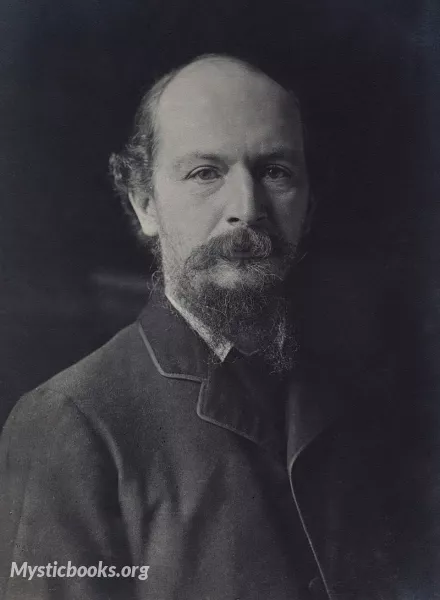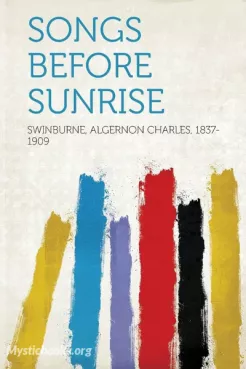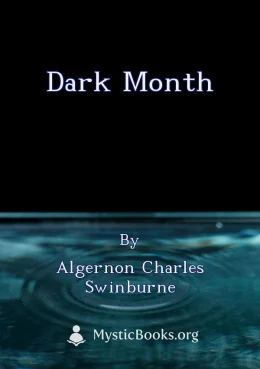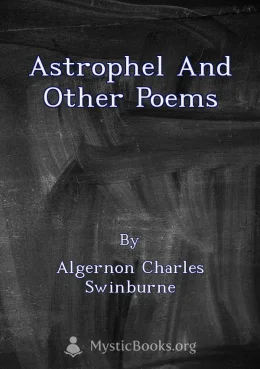
Timeline
Title
Country/Nationality
Algernon Charles Swinburne
Algernon Charles Swinburne (5 April 1837 – 10 April 1909) was an English poet, playwright, novelist, and critic. He is best known for his poetry, which is characterized by its lush language, passionate imagery, and radical politics. Swinburne was a leading figure in the Aesthetic movement, and his work helped to shape the development of modern poetry.
Early life and education
Swinburne was born in London to Charles Henry Swinburne, a naval officer, and Elizabeth Jane (née Homer). He was educated at Eton College and Balliol College, Oxford. At Oxford, Swinburne became involved in the Oxford Movement, a religious revival that emphasized the beauty and mystery of the Christian faith. However, Swinburne soon became disillusioned with the movement, and his poetry began to reflect his growing atheism and agnosticism.
Poetry
Swinburne's first collection of poetry, Poems and Ballads, was published in 1866. The poems in this collection were highly controversial for their explicit language and their celebration of violence and sensuality. Swinburne was accused of being a decadent and a hedonist, but he defended his work as a sincere expression of his aesthetic principles.
Swinburne's later poetry is less controversial, but it is still characterized by its lush language and passionate imagery. He wrote extensively on classical themes, and his poems often feature Greek gods and goddesses. Swinburne also wrote about contemporary political issues, and he was a vocal critic of the British government.
Novels and plays
In addition to poetry, Swinburne also wrote several novels and plays. His novel Love's Cross-Currents (1901) is a historical romance set in the 17th century. Swinburne also wrote several plays, including Atalanta in Calydon (1865) and Erechtheus (1876). These plays are characterized by their lyrical language and their use of classical mythology.
Criticism
Swinburne was also a distinguished critic. He wrote extensively on Elizabethan drama, and he is particularly noted for his studies of Shakespeare and Christopher Marlowe. Swinburne also wrote on a variety of other literary topics, including French poetry and the English Romantic poets.
Death and legacy
Swinburne died in 1909 at the age of 72. He is remembered as one of the most important poets of the 19th century. His work helped to shape the development of modern poetry, and he is still considered to be one of the most influential English poets of all time.
Interesting facts
- Swinburne was a lifelong vegetarian.
- He was a passionate admirer of the French poet Charles Baudelaire.
- He was a close friend of the poet Robert Browning.
- He was a vocal critic of the British Empire.
- He was a lifelong bachelor.
Conclusion
Algernon Charles Swinburne was a complex and fascinating figure. He was a brilliant poet, a gifted critic, and a passionate advocate for his beliefs. His work continues to inspire and challenge readers today.
Books by Algernon Charles Swinburne

Songs Before Sunrise
In Songs Before Sunrise, Algernon Charles Swinburne calls for a new dawn of freedom and enlightenment. This collection of poems is a passionate and lyrical celebration of the human spirit, and it challenges the reader to question the status quo. Swi...

Match
LibriVox volunteers bring you 9 different recordings of A Match by Algernon Charles Swinburne. This was the weekly poetry project for the week of February 11th, 2007.

Nephelidia
LibriVox volunteers bring you 10 readings of Nephelidia by Algernon Charles Swinburne. Note: "Nephelidia" means "Cloudlets"; the poem is Swinburne's parody of his own style.

Higher Pantheism in a Nutshell
This philosophical poem explores the concept of pantheism, the belief that God is the universe and the universe is God. Swinburne argues that this belief is more rational and satisfying than traditional theism, which posits a separate and transcenden...

Century of Roundels
This collection of poetry, "A Century of Roundels," by Algernon Charles Swinburne, showcases his mastery of a specific poetic form called the roundel. The roundel, a variation of the French rondeau, features a distinctive structure with recurring ref...

Dark Month
'Dark Month' is a collection of 31 poems written by Algernon Charles Swinburne in 1881, during the absence of his young neighbor, Herbert (Bertie) Mason. The poems explore the profound emotions of grief and loneliness that Swinburne experienced durin...

Poems and Ballads (First Series)
Algernon Charles Swinburne's *Poems and Ballads (First Series)* is a collection of intensely passionate and highly sensual verse that challenged Victorian conventions. Known for its explicit exploration of themes like love, beauty, death, and the nat...

Astrophel and Other Poems
Algernon Charles Swinburne's "Astrophel and Other Poems" is a collection of works dedicated to William Morris, renowned artist and designer. The volume's title poem is a tribute to Sir Philip Sidney, an Elizabethan poet, and his sonnet sequence "Astr...